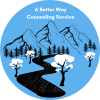14 Ways To Treat ADHD Before Trying Medication
14 Ways To Treat Adult ADD/ADHD Before Trying Medication
Introduction:
Here is a PDF version that can be printed: 14 Ways to Treat ADD and ADHD
Applying a combination of the approaches below will help anyone who has the condition of ADD/ADHD. We believe that ADD/ADHD cannot be healed completely as it is a genetic brain chemistry condition. It can however be managed and even used to one’s advantage in life. Unlike many conditions that create difficulty in people’s lives, ADD/ADHD has a positive side. Because of this positive component, many people with ADD/ADHD do not want it eliminated from their life, just managed in a manner that makes their lives, relationships, work, and general well being better. We also believe that trying the 13 items before medication is a wise approach as medication does not teach someone the benefits of the other approaches. For example how to build structure or deal with shame. Medication is often a temporary treatment for many people with ADD/ADHD, as they find that over time the medication stopped having a benefit or the side effects outweighed the benefits. Medication can be and is helpful, however it is only one of 14 approaches we think should be considered, and for many people is not needed if the other 13 approaches work.
Diagnosis/Assessment
Diagnosis is a process that results in coming to understand whether a person has ADD/ADHD or not, and ruling out other conditions that look like ADD/ADHD. For our purposes, diagnosis also means coming to understand the full weight and impact the condition has upon one’s life. Most people who successfully treat ADD/ADHD come to an epiphany moment that says “ADHD affects every part of my life and it explains many things I just didn’t understand before.”
Education
This treatment concept involves understanding what ADD/ADHD is and what it isn’t. A large volume of information is available for people attempting to manage and utilize their ADD/ADHD brain. Improving the quality of life of an adult, child or parent living with ADD/ADHD requires learning a great deal of information about the condition and its effects. Information on ADD/ADHD can be found in a vast array of books (some on audio CD), or by enrolling in a class, attending a workshop, training or conference, joining a support group, educational or therapy group, talking to others with the condition, hiring a coach or therapist, or examining the functionality of one’s own methods of doing things. There is also a great deal of resources available online and in established organizations, like CHADD, ADDresources.org, The ADD/ADHD Advocacy Program, and others. Please see our links and books list at the end of this article. (coming soon)
On-Going Awareness
On-going awareness means developing the ability to acknowledge one’s ADD/ADHD brain is affecting their life on a daily basis. This treatment concept involves learning how to increase one’s ability to be aware of how ADD/ADHD affects one’s decision making, quality of life, impact on others, ability to focus, ability to follow through, distractibility, impulsivity, spontaneity, world of work, home life, parenting, success, avoidance of certain tasks, and desire for constructive and destructive stimulating activities.
Structure
Whether in a small, large, important, or significant part of one’s life, a lack of structure inevitably creates negative consequences. Some people with ADD/ADHD figure out, on their own, how to structure certain parts of their life. All the while, they can be crippled in their functioning by a lack of structure in other parts of their life. Other individuals suffer from a lack of structure in most parts of their life. Quite often, an individual with ADD/ADHD is unaware of how the lack of structure impacts their life. Coming to understand where and how to build structure is essential to restoring a sense of order and normalcy to an often chaotic life. Building structure can involve organizing one’s physical environment, electronic environment, state of mind, or any aspect of one’s life that needs greater focus in order to avoid loss.
Dealing with Shame
One of the largest untreated components of ADD/ADHD is unresolved shame. Identifying, understanding where it came from, and working through shame are a huge part of ADD/ADHD treatment. Moving from being crippled by shame to becoming an empowered advocate for one’s own well-being is potentially one of the most impactful transformations ADD/ADHD treatment offers. Shame can have a crippling effect on a person’s ability to be successful, competent, creative and happy. Dealing with shame not only frees up the psyche, it frees up the ability to be innovative and creative.
Medication
Using medication to manage ADD/ADHD is very controversial for many people who suffer from the problems ADD/ADHD creates. Some people benefit greatly from medication, whether stimulate or non-stimulate. Others immediately react negatively to the mere idea of medication and many have stories of how medication was harmful for them when they were diagnosed as children. Getting the diagnosis, type of medication, and dosage correct are all necessary for medication to be effective. Unfortunately many medical health care providers do not initially get the dosage and diagnosis correct , and too many ADD/ADHD people have not followed through with reporting their symptoms to their medical provider in order to get the correct medication and dosage. When the medication choice, diagnosis, and dosage are correct, many ADD/ADHD people report having a good result from using medication. However, medication is not a cure for ADD/ADHD and it cannot do what the other 13 items on this list do. It cannot, for example help someone create structure, work through shame, or be a good advocate for themselves or their children. Finally some people report that using medication results in their not feeling like themselves. Possibly they miss the fast paced internal dialogue they have become accustomed to, even if they have many benefits from the medication.
Other Approaches
There are a multitude of other approaches that report to have success in treating ADD/ADHD. These approaches may be helpful for some people and not necessarily for others. Biofeedback, homeopathy, acupuncture, various types of meditation, and naturopathic medicine all claim to have a positive impact on ADD/ADHD. Some of these approaches even claim to heal ADD/ADHD. We recommend trying these approaches and seeing how they work for you. However, be cautious of any approach that claims to heal ADD/ADHD entirely, as we believe this is a life-long condition created by genetic brain chemistry that is unlikely to be completely removed by any of the treatments listed in this booklet.
Utilizing The Genius
If you have ADD/ADHD, then you have some natural abilities that people without ADD/ADHD do not have. You may be utilizing these abilities now or you may be missing out on how to use these gifts. Many people with ADD/ADHD do not use all the gifts their natural brain chemistry offers because they are tripping over themselves due to a lack of management of their ADD/ADHD symptoms. Managing the downside of ADD/ADHD offers the opportunity to utilize skills and abilities that can bring about much greater success. Many of the geniuses and entrepreneurs throughout history had or have ADD/ADHD. The genius abilities that ADD/ADHD offers is a real phenomenon that can be utilized when the downside of ADD/ADHD is managed properly.
Advocacy
Moving out of a shame-based response to ADD/ADHD allows one to become an advocate for themselves, their children, or their partner. Becoming an advocate for one’s well-being requires challenging many aspects of the dominant culture. This can be true at work, at home, at school, or even in social environments. Understanding how, when, and where to advocate for one’s self, or loved ones with ADD/ADHD, is both cathartic and develops a very important skill set that individuals with ADD/ADHD will utilize throughout their lifetime.
Understanding the Impact on Others
It is quite common for people with ADD/ADHD to not understand the impact they have on others. One of the concerns we hear most often in treatment is how others are disturbed by their behavior. Coming to understand the impact that their condition has on important people in their life is a major part of treatment. It becomes necessary to learn how to mitigate the impact of ADD/ADHD on others and educate them about the condition.
Counseling
Working with a counselor who understands the difficulties, complexities, and abilities of a person with ADD/ADHD creates a foundation for significant treatment to unfold. People with ADD/ADHD often attempt to go about getting help in a sporadic, ungrounded fashion. Of course, this is often how they go about most things in their lives. The counseling process offers the opportunity to see this sporadic pattern, the impact of it, and how to go about having greater consistency and follow through. When the counseling process is regular and structured, it creates a metaphor of how to build structure in one’s life. Counseling also offers an opportunity to see the impact on relationships, work through shame, and address any other co-occurring issues. Counseling can also help the individual see their strengths and unmet potential. The importance of working with a counselor who understands ADD/ADHD cannot be understated.
Support
It is extremely helpful for individuals with ADD/ADHD to have someone non judgmental to talk to. It is also helpful to talk to others who are in the process of understanding their own ADD/ADHD. Support can be found by attending groups, classes, or conferences. People with ADHD might find their family, friends, co-workers and neighbors to be understanding of their condition, if they pay closer attention to them. They can also find support in organizations like CHADD, ADDResource.org, Meetup.org, and The ADD/ADHD Advocacy Program at A Better Way Counseling.
Creating Innovative Methods (and believing in them)
People with ADHD often create, or have to create, different ways of going about accomplishing tasks. These different methods can be tremendous help for someone who is having difficulty staying on task, completing projects, or following a plan. These methods may meet with resistance from the world at large and will require an ability to demonstrate their effectiveness. Being able to convince others that you can perform adequately using different methods will mean that you have to believe in yourself and your alternative ways. This approach also utilizes the “Dealing with shame” and “Advocacy” concepts mentioned in this booklet.
Diet
A consistent change in diet can be very helpful for someone attempting to manage their ADD/ADHD. The issue here is consistency. If someone is doing everything listed above, then restructuring their diet should be achievable. However, there is one dietary adjustment that can change a person’s entire disposition in just two weeks. This simple change only applies to people with extreme or what I call “stratospheric ADD/ADHD”. It does not apply to the run-of-the-mill, average person with ADD/ADHD. Indeed, this dietary habit creates extremely dysfunctional ADD/ADHD. For everybody else with ADD/ADHD, there are other specific dietary changes that, when made, can make a difference in a person’s ability to focus and manage their life.
Exercise
Most health professionals would suggest that exercising three times a week would improve most medical conditions. However, there is good evidence that aerobic exercise every day has a very positive effect on the ADD/ADHD person’s ability to focus, manage their lives, and be less hyper. Increasing blood flow to the brain is clearly part of this benefit. However, being involved in activities that require hand and eye coordination, movement, balance, and agility seems to have a positive impact on a person with ADD/ADHD, as well.


